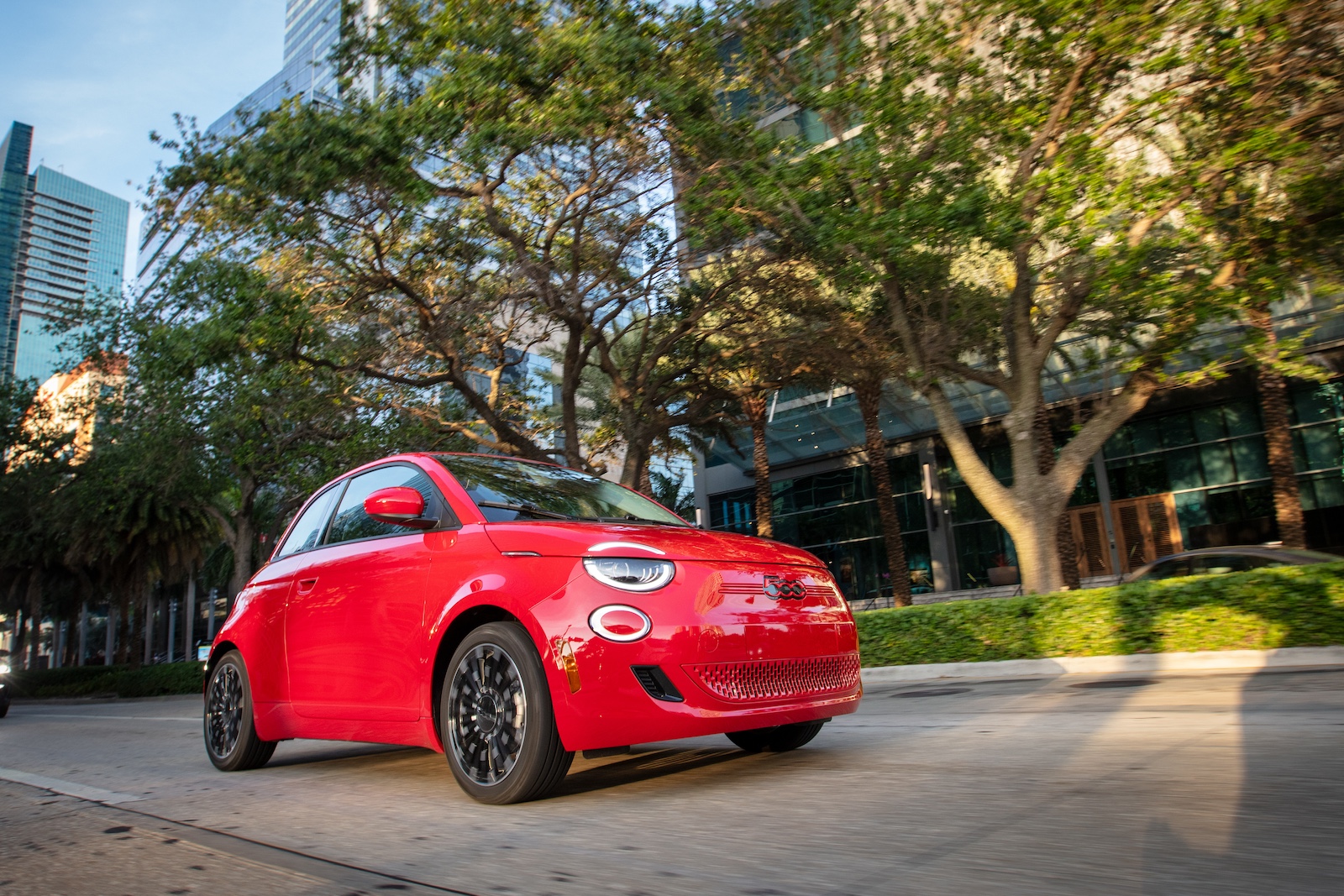
Sign up for daily news updates from CleanTechnica on email. Or follow us on Google News!
South Korea’s ProLogium is at CES 2025 this week to introduce its 4th generation lithium ceramic battery (LCB) system, which it says can redefine the EV driving experience. The company says its new battery technology addresses many of the concerns electric car drivers experience every day — total cost of ownership, range anxiety, and safety. Founder and chairman Vincent Yang joined FEV Global Vice President Dr. Thomas Hülshorst on the Mobility Stage to explore the future of EVs. Yang emphasized: “After launching the world’s first full ceramic separator battery in 2024, ProLogium is once again leading in 2025 with the world’s first fully inorganic electrolyte battery, aiming to start pilot production and bring next generation batteries to life by year-end.”
The ProLogium Fully Inorganic Electrolyte
Years of research have culminated in ProLogium’s 4th generation lithium ceramic battery with fully inorganic electrolyte, eliminating organic content entirely and increasing inorganic content from 90% to 100%. This small advancement greatly enhances energy density, charging speed, low temperature reliability, and safety, redefining what next-generation batteries can achieve. A 2024 McKinsey report highlighted total cost of ownership, range anxiety, and safety as the primary barriers to EV adoption. ProLogium’s fourth generation LCB system tackles these challenges head-on with five key advancements:
- Extended range thanks to exceptional energy density
- Fast charging in 10 minutes or less
- Reliable low-temperature performance
- Efficient heat dissipation
- Enhanced safety
ProLogium’s breakthroughs in energy density surpass lithium iron phosphate (LFP) batteries by up to 150 percent. The 4th generation LCB achieves 380Wh/kg and 860–900Wh/L, improving range, reducing costs, and enabling lighter, more efficient designs. The system supports thick film and bi-cell technologies, paving the way for further advancements in battery performance. “Building on our success, we’re nearing our 2026 target of surpassing 450Wh/kg and 1000Wh/L with lithium metal anodes,” said Yang, based on the company’s latest lab results. The fourth-generation lithium ceramic system cuts charging time to just 4 minutes for 60% capacity and 6 minutes for 80%. Such rapid charging approaches the convenience of refueling while boosting charging station efficiency and profitability.
High Performance In The Cold
Here is something that will be of interest to those who live in cold climates. ProLogium’s battery excels in extreme cold, with 2 to 3 times the ionic conductivity of traditional liquid batteries at room temperature. Even at -20°C, it delivers consistent range performance, eliminating concerns about unpredictable driving distances in harsh conditions. Unlike conventional lithium-ion or sulfide-based batteries, ProLogium’s fully inorganic electrolyte is inherently non-flammable, even under extreme heat or voltage. An advanced Active Safety Mechanism (ASM) further prevents thermal runaway by activating automatically at high temperatures. In rigorous overcharge tests — including 300°C, 5C, 20V, and 250% capacity — the battery remained fireproof and non-combustible, achieving a Hazard Level of 2 to 3. These advancements set a new benchmark for safety in next-generation batteries, the company says.
The ProLogium ceramic separator and advanced wet film coating technology deliver three times the thermal conductivity of traditional liquid batteries. Large-format cell designs of up to 500 × 560 mm enhance heat dissipation, ensuring stability even under high load conditions like high speed driving. Additionally, the planar liquid cooling system reduces reliance on active cooling, lowers activation frequency, and improves overall energy efficiency.
At CES 2025, Yang and Hülshorst delivered a keynote address entitled “Battery Breakthroughs: Redefining the EV Driving Experience.” In his talk, Yang stressed that, “True innovation begins with the core chemistry of batteries — reducing charging times and enhancing safety to benefit the entire ecosystem. The EV market can only thrive sustainably when consumers trust battery technology and charging stations operate profitably.” Hülshorst added, “ProLogium’s high energy density cells enable smaller, lighter battery packs, ideal for EVs. By combining ProLogium’s forward thinking technology with FEV’s engineering expertise, we are shaping the future of sustainable transportation.”
80% Material Recovery
ProLogium’s commitment to sustainability includes a circular system achieving over 80 percent material recovery, enhancing the value of second-hand vehicles. “EVs shouldn’t just be an option. They should represent a better future,” Yang said. “From consumers to operators, manufacturing to recycling, ProLogium is creating an ecosystem that delivers value at every level, advancing the global vision of a net-zero future.”
ProLogium Technology was founded in 2006 and is an innovative company specializing in the development and manufacturing of next-generation lithium-ceramic batteries for electric vehicles, consumer markets, and industrial applications. The company has delivered more than 12,000 lithium-ceramic battery samples to global automakers for testing and the development of modules. Its first gigawatt-hour scale production demonstration line, located in Taoyuan, Taiwan, began production in 2024 to serve the global market.
In May 2024, ProLogium announced the opening of its first overseas R&D center, located in Paris-Saclay, dedicated to developing solutions tailored to the European market. At the same time, ProLogium’s first overseas gigafactory project, located in Dunkirk, France, successfully completed the public consultation process to obtain construction and environmental assessment permits. Construction is expected to begin in 2025, with mass production slated for 2027.
Glass Batteries
As my colleague Tina Casey reported last month, ceramic batteries — sometimes called “glass batteries” — replace the flammable liquid electrolyte in conventional lithium-ion EV batteries fully or partly with a stable, solid material that is more environmentally friendly. The evolution of the solid-state battery has been a long time coming. One breakthrough was reported by Hitachi back in 1985, but the idea didn’t gain much traction until 2017. That’s when a team at the University of Texas Cockrell School of Engineering reported an electrolyte based on glass, building on the work of the legendary lithium-ion battery innovator Professor John Goodenough and senior research fellow Maria Helena Braga.
On December 12, 2024, ProLogium announced that its next-generation lithium ceramic battery was awarded a new certification by the independent safety and performance inspection firm TÜV Rheinland. The achievement follows an initial certification earned in March. “The TÜV Rheinland certification confirms that ProLogium’s next generation lithium ceramic battery delivers an industry-leading energy density of 811.6 Wh/L (volumetric) and 359.2 Wh/kg (gravimetric),” ProLogium explained in a press statement, adding that the new milestone was achieved on a battery manufactured on the company’s pilot production line.
What is exciting about this announcement is that the ProLogium lithium-ceramic battery promises to make driving an electric car more like driving a conventional car. The superior charging ability and low temperature operation will eliminate many of the fears people have about driving an electric car. Higher energy density and lighter battery packs are just the icing on the cake.
Hat tip to Dan Allard

Chip in a few dollars a month to help support independent cleantech coverage that helps to accelerate the cleantech revolution!
Have a tip for CleanTechnica? Want to advertise? Want to suggest a guest for our CleanTech Talk podcast? Contact us here.
Sign up for our daily newsletter for 15 new cleantech stories a day. Or sign up for our weekly one if daily is too frequent.
CleanTechnica uses affiliate links. See our policy here.
CleanTechnica’s Comment Policy



